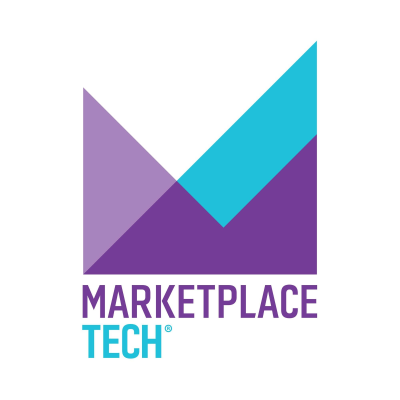Marketplace Tech

Monday through Friday, Marketplace demystifies the digital economy in less than 10 minutes. We look past the hype and ask tough questions about an industry that's constantly changing.
Website : https://www.marketplace.org/
IPFS Feed : https://ipfspodcasting.com/RSS/396/MarketplaceTech.xml
Last Episode : August 26, 2025 10:00am
Last Scanned : 6 minutes ago

Episodes
Episodes currently hosted on IPFS.
 Denmark to end 400 years of letter delivery service
Denmark to end 400 years of letter delivery serviceAcross Europe, postal services are grappling with declining letter volumes, amid a rise in digitalization. In Demark, where the decline has been particularly steep, the publicly-owned national postal service, PostNord, is bringing an end to 400 years of letter deliveries, to focus solely on parcels from 2026. And while a private firm will step into the gap, letters are a shrinking business. So as digitalization grows, do letters have a future? The BBC’s Adrienne Murray reports from the Danish capital with more details.
 Workers aren't getting what they want from AI
Workers aren't getting what they want from AIA survey of about 1,500 workers showed AI has been a useful tool for repetitive work. But some respondents want more — sometimes, more than the technology is capable of.
In this episode, Marketplace’s Meghan Mccarty Carino speaks with Stanford economist Erik Brynjolfsson about the disconnect between workers' wants and AI's current role in the workplace.
 When an AI internet search competes against a human internet search
When an AI internet search competes against a human internet searchWhen President Jimmy Carter died late last year, the foundation that runs Wikipedia noticed something unusual: the flood of interest in the late president created a content bottleneck, slowing load times for about an hour.
Wikipedia is built to handle spikes in traffic like this, according to the Wikimedia Foundation, but it's also dealing with a surge of bots scraping the site to train AI models, and clogging up its servers in the process, the organization’s chief product and technology officer Selena Deckelmann told Marketplace’s Meghan McCarty Carino.
 Meta's news blackout in Canada causes problems during election
Meta's news blackout in Canada causes problems during electionCanada's liberal party and its leader Mark Carney are set to remain in control after the country held federal elections Monday. They were the first since Canada adopted the Online News Act in 2023, which requires online content providers — like social media platforms — to negotiate some sort of "fair" payment to news publishers in exchange for using their content. They can also do what Meta did — block news from their Facebook and Instagram platforms altogether. Marketplace’s Meghan McCarty Carino spoke with Marketplace Senior Washington Correspondent Kimberly Adams, who’s been reporting on the election from Canada, to learn more about that law and what happened to the online news environment after it passed.
 AI can't read the room
AI can't read the roomLeyla Isik, a professor of cognitive science at Johns Hopkins University, is also a senior scientist on a new study looking at how good AI is at reading social cues. She and her research team took short videos of people doing things — two people chatting, two babies on a playmat, two people doing a synchronized skate routine — and showed them to human participants. After, they were asked them questions like, are these two communicating with each other? Are they communicating? Is it a positive or negative interaction? Then, they showed the same videos to over 350 open source AI models. (Which is a lot, though it didn't include all the latest and greatest ones out there.) Isik found that the AI models were a lot worse than humans at understanding what was going on. Marketplace’s Stephanie Hughes visited Isik at her lab in Johns Hopkins to discuss the findings.
 Bytes: Week in Review - OpenAI's for-profit troubles, FTC sues Uber and how VCs are weathering Trump tariffs
Bytes: Week in Review - OpenAI's for-profit troubles, FTC sues Uber and how VCs are weathering Trump tariffsIt's the last Friday in April and it's time for Marketplace Tech Bytes Week in Review.
This week, we'll talk about how the Federal Trade Commission is suing Uber over its subscription service.
Plus, how the VC world is navigating the uncertainty created by the trade war.
But first, a nonprofit pivot is facing some challenges. Open AI, the maker of ChatGPT was founded about a decade ago as a nonprofit research lab. It's now looking to restructure as a for-profit — specifically, a public benefit corporation
But that transformation is facing resistance.
About 10 former Open AI employees, along with several Nobel laureates and other experts, have written an open letter asking regulators in California and Delaware to block the change.
They argue that nonprofit control is crucial to Open AI's mission, which is to “ensure that artificial general intelligence benefits all of humanity."
Marketplace’s Stephanie Hughes spoke with Jewel Burks Solomon, managing partner at Collab Capital, about how unusual it is to see this kind of conversion.
More on everything we talked about
An Open Letter - Not For Private Gain
Ex-OpenAI workers ask California and Delaware AGs to block for-profit conversion of ChatGPT maker - from the Associated Press
OpenAI’s Latest Funding Round Comes With a $20 Billion Catch - from the Wall Street Journal
FTC Takes Action Against Uber for Deceptive Billing and Cancellation Practices - from the Federal Trade Commission
FTC sues Uber over difficulty of canceling subscriptions, “false” claims - from ArsTechnica
White House Considers Slashing China Tariffs to De-Escalate Trade War - from the Wall Street Journal
VC manufacturing deals were already declining before tariffs entered the picture - from Pitchbook
 Cities take the lead in battling rent-setting algorithms
Cities take the lead in battling rent-setting algorithmsThe use of algorithmic software in setting residential rents has come under scrutiny in recent years. In 2024, the Joe Biden administration sued real estate company RealPage, alleging that its algorithm, which aggregates and analyzes private data on the housing market, enables landlords to collude in pricing and stifles competition. There's no word yet on what the second Donald Trump administration's Justice Department will do with this case. But in the meantime, some cities are banning the use of these algorithms completely. Marketplace’s Meghan McCarty Carino spoke with Robbie Sequeira, who has been reporting on the issue for Stateline.
 Mobile apps are failing users with disabilities
Mobile apps are failing users with disabilitiesDevelopers of mobile apps have "room for improvement" in making their platforms fully accessible for disabled users, according to a new report from the software company ArcTouch and the digital research platform Fable.
It looked at fifty popular apps and assessed them for features that improve accessibility like screen reading, text size adjustability, voice controls and multiple screen orientations. The apps were tested by disabled users who reported a poor or failing experience almost three-quarters of the time.
Marketplace’s Meghan McCarty Carino spoke with Ben Ogilvie, head of accessibility at ArcTouch, to learn more about why so many apps are behind.
 For the 2034 Olympics, Utah wants air taxis instead of Ubers
For the 2034 Olympics, Utah wants air taxis instead of UbersFlying cars have been a staple of science-fiction visions of the future for ages. Perhaps most famously in “Back to the Future II.” The film may have overshot the mark a bit with Doc and Marty McFly navigating full-on air highways in 2015. But Utah is pushing for the technology to take off by 2034, when the state hosts the Olympic and paralympic winter games.
We're not exactly talking about flying Delorians or vehicles you'd recognize as a car, but rather small, lightweight aircraft for traveling shorter distances. Reporter Caroline Ballard got a first look at the air taxis.
 Virginia's reliance on surveillance tech raises data privacy questions
Virginia's reliance on surveillance tech raises data privacy questionsSurveillance technology like automated license plate readers has become commonplace in policing. They've made it easier to locate stolen vehicles and track suspects, but they've also raised concerns about civil liberties. Cardinal News Executive Editor Jeff Schwaner took a 300-mile drive through the state to see how often his car would be recorded. Marketplace’s Meghan McCarty Carino spoke with Schwaner about his experience and issues related to privacy and who has access to the data.
 Is using AI in job interviews cheating?
Is using AI in job interviews cheating?One area where artificial intelligence has been swiftly adopted is software coding. Google even boasted last year that more than a quarter of its code was generated by AI. But the technology is also generating challenges to the traditional technical job interview, where candidates are given programming problems as a way to assess their skills. And lately it’s become apparent that a lot of applicants are using AI to give themselves a boost, according to recent reporting from Business Insider's Amanda Hoover. Marketplace’s Meghan McCarty Carino spoke with Hoover about the controversy over applicants using AI while interviewing for jobs that often use AI.
 Bytes: Week in Review — How tariffs impact consumer gadgets, e-commerce and the AI boom
Bytes: Week in Review — How tariffs impact consumer gadgets, e-commerce and the AI boomThe tariff rollercoaster has created a lot of uncertainty in the tech industry. We're digging into how its playing out for makers of consumer tech, e-commerce platforms and AI. Marketplace’s Meghan McCarty Carino speaks with Paresh Dave, senior writer at Wired, about all these topics for this week’s Tech Bytes.